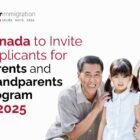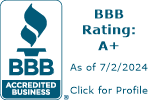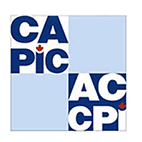The Canadian government introduced the Canada PR point-based system called the Comprehensive Ranking System (CRS) to evaluate and rank Express Entry candidates. The CRS score is calculated based on six factors: age, education, work experience, language proficiency, arranged employment in Canada, and adaptability. Each factor has a maximum number of points that can be earned, and the total score determines the candidate’s ranking in the Express Entry pool.
Difference Between CRS and FSW 67 Points
One thing that often confuses people who want to immigrate to Canada is understanding how to calculate their score. It’s important to differentiate between the Comprehensive Ranking System (CRS) and program-specific points, like the ones in the Federal Skilled Worker (FSW) program.
CRS Points
- CRS points are part of the Comprehensive Ranking System used in the Express Entry system, which manages applications for three federal economic immigration programs in Canada.
- The maximum CRS score is 1,200.
- CRS points are assigned based on age, education, work experience, language proficiency, and other criteria.
- The higher your CRS score, the better your chances of receiving an Invitation to Apply (ITA) for permanent residence in Canada.
| Factor | Maximum Points |
|---|---|
| Core/Human Capital Factors | 500 |
| - Age | 110 |
| - Education | 150 |
| - Language Proficiency (English/French) | 136 |
| - Canadian Work Experience | 80 |
| Skill Transferability Factors | 100 |
| - Education and Canadian Work Experience | 50 |
| - Foreign Work Experience | 50 |
| Additional Points | 600 |
| - Brother or Sister living in Canada | 15 |
| - French Language Proficiency | 30 |
| - Post-Secondary Education in Canada | 30 |
| - Job Offer | 200 |
| - Provincial Nomination | 600 |
| Total Maximum CRS Points | 1200 |
FSW Points
- FSW points refer specifically to the points awarded in the Federal Skilled Worker Program, one of the three federal economic immigration programs managed by the Express Entry system.
- Candidates must score at least 67 out of 100 points to qualify for the program.
- The FSW points system evaluates candidates based on age, education, work experience, language proficiency, and adaptability.
- Applicants need to meet a minimum point threshold to be eligible for the Federal Skilled Worker program.
| Selection Factor | Maximum Points |
|---|---|
| Age | 12 |
| Education | 25 |
| Work Experience | 15 |
| Language Skills | 28 |
| Arranged Employment in Canada | 10 |
| Adaptability | 10 |
| Total | 100 |
Get Professional Help with Your Canadian PR Application
Apply for Canadian PR with the Help of Licensed RCIC Experts.
So, which score to calculate first?
To determine your eligibility for immigration to Canada using the Express Entry system, it’s important first to evaluate if you meet the criteria for one of the three federal economic immigration programs: Federal Skilled Worker (FSW), Federal Skilled Trades (FST), or Canadian Experience Class (CEC).
Start by assessing your eligibility for a specific federal program, and then proceed to calculate your CRS score. This sequential approach ensures a clear understanding of your candidacy within the Express Entry system.
- Step 1: Calculate your FSW Score using the 67 Points Calculator here.
- Step 2: Calculate the Comprehensive Ranking Score using the CRS Score Calculator.

Get Expert Guidance on Canada PR Application Process
Factors Affecting Canada PR Point System Score
The score is based on various criteria, including Age, Education, Language skills, Work experience, and Other factors.
Age Factor
Younger applicants get more points as they are more likely to be able to adapt to the Canadian style of living. Moreover, they are also expected to contribute to the Canadian economy for a longer time.
- Under the CRS, age is a significant factor, and candidates between 18 and 35 receive the maximum points for this category (110 points).
- In the FSW program, age is a crucial factor, and applicants between 18 and 35 are awarded the maximum points for age (12 points).
Education Factor
Immigration score is based on your qualifications as it reflects your ability to contribute to the Canadian economy. Typically, the more years you have spent in post-secondary education, the higher your score (as it reflects your skills and knowledge).
- In the CRS, education contributes 150 points to a candidate’s score.
- Education is a core selection factor in the FSW program, contributing a maximum of 25 points.
Language Ability
Applicants who can comprehend and speak English or French fluently and score well on the language fluency test (IELTS) get more points than those with lower scores.
Applicants with fluency in either one of the two languages are also eligible to apply. Since Canada is officially bilingual, applicants who speak English and French fluently have an advantage over those who cannot.
- In the CRS, language proficiency is a significant component, contributing a maximum of 136 points.
- Language proficiency is a core selection factor in the FSW program, contributing a maximum of 28 points.
Work Experience
Getting a sufficient score for permanent residence in Canada also depends on your work experience. If you have relevant work experience, it shows you have the skills and abilities required to join the Canadian workforce.
Applicants with work experience, especially in specialized occupations, including software engineering, medicine, and healthcare, are awarded more points than those without work experience. Moreover, they are awarded more points than individuals with work experience in unskilled occupations.
- Work experience is a crucial component in the CRS, contributing 80 points.
- Work experience is a core selection factor in the FSW program, contributing a maximum of 15 points.
Arranged Employment in Canada
Arranged employment in Canada refers to having a valid job offer from a Canadian employer. This job offer must be supported by a positive Labour Market Impact Assessment (LMIA) or fall under an LMIA exemption.
- In the Comprehensive Ranking System (CRS), candidates with a valid job offer receive additional points. A job offer supported by an LMIA can contribute up to 200 points to a candidate’s CRS score.
- Arranged employment is one of the ways applicants can enhance their eligibility and score in the FSW program. They can earn up to 10 points for this factor.
How to Maximize Your Score?
If you’re planning to immigrate to Canada, it’s important to know how to maximize your score in the Canada PR point system. This system assesses a potential immigrant’s ability to contribute to the Canadian economy and live in the country. The higher your score, the better your chances of acceptance.
To improve your chances of immigration and Canadian PR, here are a few tips:
- First, check your eligibility depending on the program you’re applying for immigration to Canada.
- Ensure that you meet all the minimum requirements of your chosen program, such as language proficiency score and education.
- Applying for immigration and Canadian PR with a higher level of education and skilled work experience is one of the ways to increase your immigration score.
- Getting support from relatives or friends already living in Canada can help you find employment before you arrive in the country, which can boost your score.
- Familiarizing yourself with Canadian culture before applying for immigration can make the transition easier for you, and that will reflect in your score.
Get Professional Help with Your Canadian PR Application
Apply for Canadian PR with the Help of Licensed RCIC Experts.
Need help?
Understanding the point system for Canadian PR is critical before you plan your entry to the country. By familiarizing yourself with the point system, you will determine whether you are eligible for Canadian immigration and PR. You will also know about the possible steps you should take to maximize your score.
If you need assistance applying for Canadian immigration, connect today with Elaar Immigration and let our experts guide you for Canadian PR. Get in touch today to learn more about how we can assist you.









